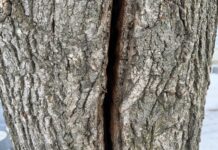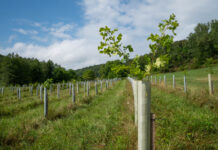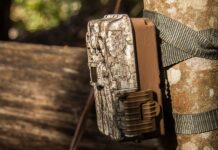KISSIMMEE, Fla. – Sixth-three percent of Florida ranches, stocked with approximately 1.2 million head of beef cattle, were significantly damaged by Hurricane Charley, according to estimates of the Florida Cattlemen’s Association.
The storm destroyed fencing and caused a lot of farm structural damage on approximately 9 million acres of cattle ranches in Florida. The state’s largest populations of cattle are located in 14 of the 25 counties designated as federal disaster areas. Charlotte, Desoto, Polk, Hardee, Highlands and Osceola counties were the areas where cattle ranches suffered the most damage.
Food supply safe. “However, the public should be reassured that Florida’s food supply for beef cattle is safe, ” said Mike Milicevic, president of the association. “Fortunately, based on our communications with all of our cattle ranchers, their employees and families, they are healthy and whole with no reported loss of life.”
In preparation for the storm, many ranchers tied open the interior gates of their ranches to give their cattle the ability to access more drinking water and mobility to drier, higher ground. A ranch’s routine pasture rotation is often thrown off by a period of heavy rain but allowing cattle to roam a larger range ensures they have access to adequate grazing.
Safer outside. During storms, cattle generally get along pretty well in pastures as long as some debris does not hit them. Experience indicates they are safer in a pasture than in a confined structure that may collapse on them.
However they do need dry ground to lie on and to graze. Cattle move away from standing water in pastures, primarily to avoid mosquitoes.
Unlike other livestock, cattle are not typically kept in structures, so flooding is less of a concern. Also, supplemental feed is usually not necessary for cattle on range during summer months as long as they have access to dry grassland for nourishment.
Lightning more lethal. Many cattle are lost every year in Florida due to lightning strikes but there have been very few reports of any cattle fatalities from Hurricane Charley.
Members of the Florida Cattlemen’s Association are attempting to access financial assistance from the Federal Emergency Management Agency. The USDA Farm Service Agency and the Natural Resource Conservation Service are providing guidance to the Florida Cattlemen’s Association on application procedures.
Ranches are in need of financial assistance primarily for structural repairs, fencing and debris removal. Early indications are that the cattlemen must follow a county-by-county application process.
Damage assessment. Florida’s secretary of agriculture, Charles Bronson, met with officials from the Florida Cattlemen’s Association earlier this week and toured some of the ranches affected by the storm. The Florida Department of Agriculture is conducting a statewide damage assessment of the cattle industry. The Florida Cattlemen’s Association is working with personnel of the University of Florida Extension Service and Department of Agriculture to get fence building material, chainsaws, and equipment such as generators available to rural areas.
The association has confirmed that Florida Governor Jeb Bush’s executive order number issued Aug. 10 includes transporting of cattle and other livestock. This order grants the Florida Department of Transportation the authority to permit movement of vehicles transporting agricultural products or equipment to or from areas affected by Hurricane Charley.
Raising the allowable weight limit on trucks will allow the rapid movement of cattle out of areas where land is wet or flooded to areas of with more dry land. The governor’s order also raised tonnage limits for the transportation of timber, citrus, dairy products and drinkable water.
Reducing strays. The association is coordinating crews of volunteers to help repair extensive damage to fencing, farm structural damage and gathering of stray cattle. The priority of the volunteer effort is to repair perimeter fencing around ranches that border roads, to reduce stray cattle and keep the roadways safe.
The ground at a few ranches is too wet for the use of heavy equipment, including front-end loaders and track hoes, to move trees and make necessary repairs. In these cases, volunteers are transporting cattle to ranches with dry land. The state headquarters for the association also incurred some structural damage.
Auctions affected. Livestock auction markets in Wauchula, Arcadia and Lakeland remain closed due to damage from the storm. The livestock auction market in Lakeland is set to reopen next week.
The Okeechobee Livestock market will open an additional day for sales on Wednesday starting next week. It is undetermined as when the markets in Wauchula and Arcadia will reopen.
Get 4 Weeks of Farm and Dairy Home Delivered









